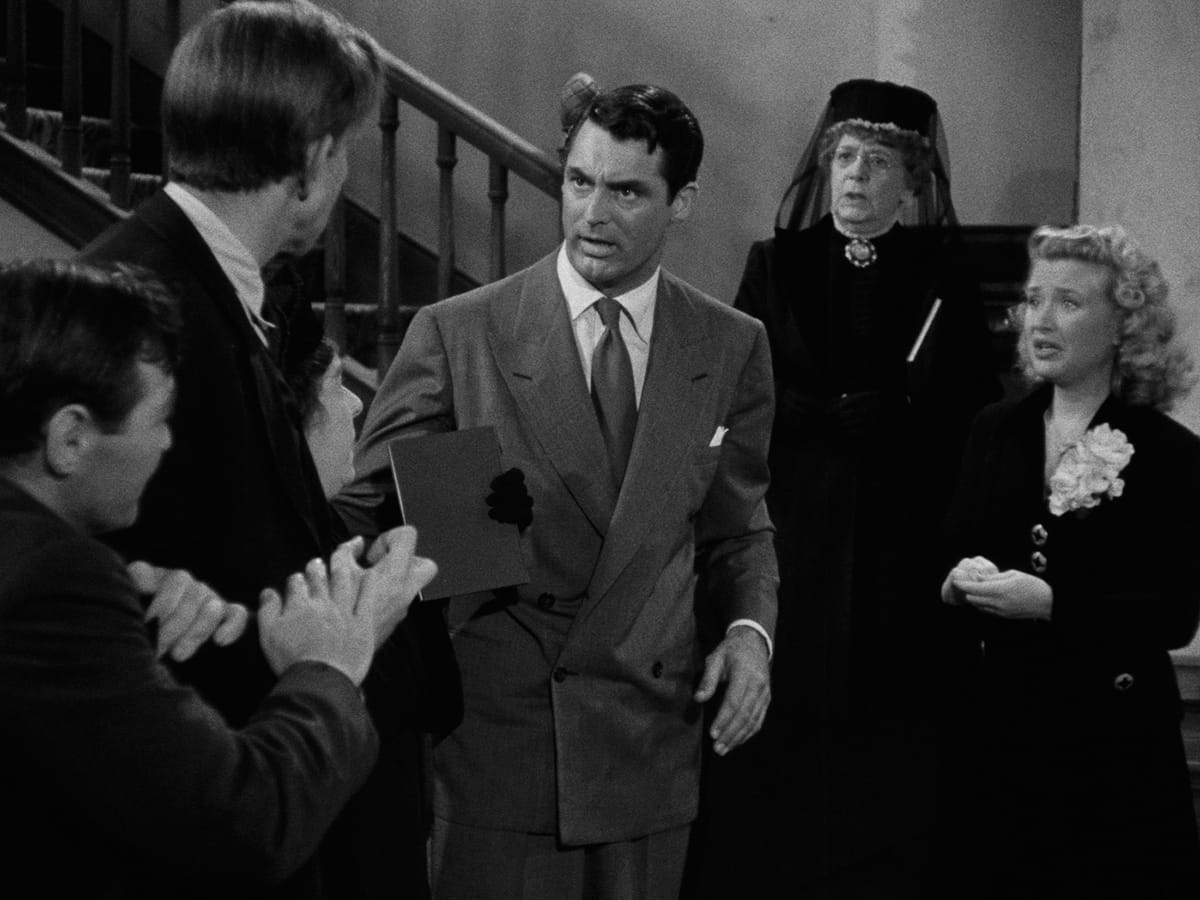

Discover more from The Magic Lantern
The House of Funny Horrors
This Halloween let’s watch “Arsenic and Old Lace” for its great, macabre humor, the silly prejudices of “sweet” old ladies, loads of laughs, and as always, the incomparable Cary Grant.
What do you get when you make a Halloween stew of familial madness, dead bodies, and two old spinsters? “Arsenic and Old Lace,” a 1944 classic film directed by Frank Capra with the ever-suave Cary Grant in the leading role. Except here, Grant’s smoothness is set aside for a series of outrageous events occurring in Brooklyn one Halloween night.
Grant plays Mortimer Brewster, a famous New York “dramatic critic,” who has written several books on why marriage is the worst thing in the world, a “fraud,” and a “failure.” He has an established reputation as New York’s bachelor, which he is supposed to protect and maintain. So, it is rather odd that he finds himself at the City Hall, getting a marriage license to make the union official with the woman he couldn’t resist—Elaine Harper.
Mortimer’s parents are long gone, and his only connection to the family are his two aunts, Abby and Martha, and a brother who is convinced he is actually Teddy Roosevelt. “Teddy” regularly reenacts various events from the president’s life.
Abby and Martha are sweetness personified. They care for their neighbors, they have a good relationship with the minister (Elaine’s father), and they even offer a room for rent and a good meal for strangers who are passing by. But something wicked lies beyond the door of the house next to the old cemetery, something Mortimer couldn’t ever have imagined.
When he visits his aunts to announce the exciting news of his marriage to Elaine, Mortimer discovers a dead body hidden in the window seat. He’s not quite sure how the corpse made it into his aunts’ house, let alone in the window seat. What ensues is one of the best black comedies, the horrific proportions of which were ever captured on the silver screen. (One can see its influence in such movies as Joe Dante’s 1989 “The ‘Burbs” and John Waters’ 1994 “Serial Mom.”)
Subscribe to The Magic Lantern
Seeing Films and Culture in a Different Light





